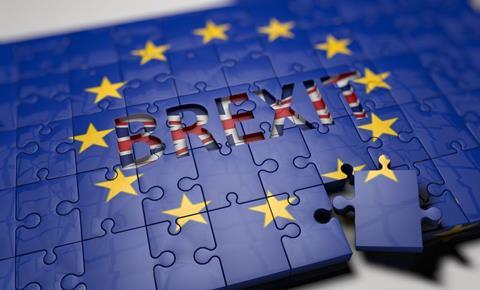The meat sector faces the highest tariffs of all industries under WTO rules, according to analysis by the European Livestock and Meat Trades Union (UECBV), with estimated average tariff rates close to 50% and exceeding 100% for some products, rendering it “uniquely vulnerable” in a no-deal situation.
UECBV commissioned Red Flag, a specialist strategic communications and campaigns consultancy, to carry out a report of the potential impact of a ‘hard Brexit’ and look into how great the impact of this outcome would be on the meat sector.
According to the analysis, the export costs imposed by tariff barriers, customs and veterinary checks and increased transport costs would reduce exports of meat on conservative estimates from the EU to the UK by up to 84% for beef, 48% for pigmeat and 76% for sheepmeat.

The aforementioned reduction in trade will create a surplus of EU beef and pigmeat, affecting market price, notes the report, which will in turn reduce the value of EU production of meat and result in a “structural reduction in EU beef market price of over 8% and pigmeat price by over 7%”.
The price shock would reduce the value of EU production of beef by approximately €2.4 billion in the short run, and of pigmeat by over €2.3 billion.
The report goes on to highlight that the impact on the EU meat sector in the event of the ‘hard Brexit’ scenario is expected to be “far greater loss on EU producers than the Russian import ban”, which saw meat exports to Russia worth just over €1.2 billion be exposed to it.
Total meat exports from the EU27 to the UK, by contrast, were worth €4.3 billion in 2015.
Tariff barriers, customs checks, veterinary requirements and increased transport costs are not the only factors that will affect meat trade, according to UECBV; specific duties based on weight will also affect different categories of meat, distorting the market, while just-in-time and fresh trade in meat facing “particular threats from transport delays”.
In addition, exporters who use Great Britain as a ‘land-bridge’ to export goods from mainland Europe to Ireland and vice versa are “particularly vulnerable to cost increases”.
UECBV is recommending a transition period to provide greater business certainty and avoid ‘cliff-edge’ and a future trade partnership between the EU27 and the UK.
“Crucially for the meat industry,” the report notes, “maintain the current arrangements of the Single Market would mean no additional costs stemming from veterinary and health checks.
“Full liberalisation is the single-most effective way of avoiding the worst effects of a ‘hard Brexit’.”
Finally, in the event that the UK leaves the Single Market, the negative implications of differing standards and the imposition of veterinary checks can be minimised, according to UECBV, through ensuring a “bespoke equivalence on vet standards, grounded on the maintenance of the EU Acqui Communataire”.
Commenting on the report launch, Philippe Borremans, chairman of UECBV said: “A hard Brexit represents the greatest threat to European producers, consumers and processors of meat, with a potential impact much greater than the Russian import ban.
"By potentially cutting off one of the largest and highest value meat markets in Europe, Brexit threatens to be catastrophic for industry across Europe and UK. In this worst case scenario, in which no deal between EU and UK is agreed, the impact to the meat sector will be devastating, due to the particular exposure of this sector to tariff burden, additional veterinary costs and increased customs and transport checks and associated logistics disruption.”
Upon the launch of the report, the Scottish Association of Meat Wholesalers (SAMW) urged negotiators and politicians in the EU and UK to study it and address the issues raised in a “new spirit of communication and cooperation”.
SAMW added: “SAMW welcomes UECBV’s highly informed and knowledgeable input and would urge EU and UK negotiators alike to address the issues raised in the report.
“Our challenge to the UK and Scottish Governments is to pursue a plan which maximises the advantages and opportunities which will arise throughout the duration of the UK’s Brexit transition, and which establishes a production and business platform for post-EU Britain which will enable the industry to grow its domestic and export markets.”
The International Meat Trade Association also noted: “The meat industry has a number of characteristics which pose unique challenges to our sector, such as high tariffs and veterinary checks.
“The UK and EU - 27 meat industry are agreed that a deal needs to be reached in order to avoid the damaging implications of a hard Brexit to industry but also consumers.”
This story was originally published on a previous version of the Meat Management website and so there may be some missing images and formatting issues.















